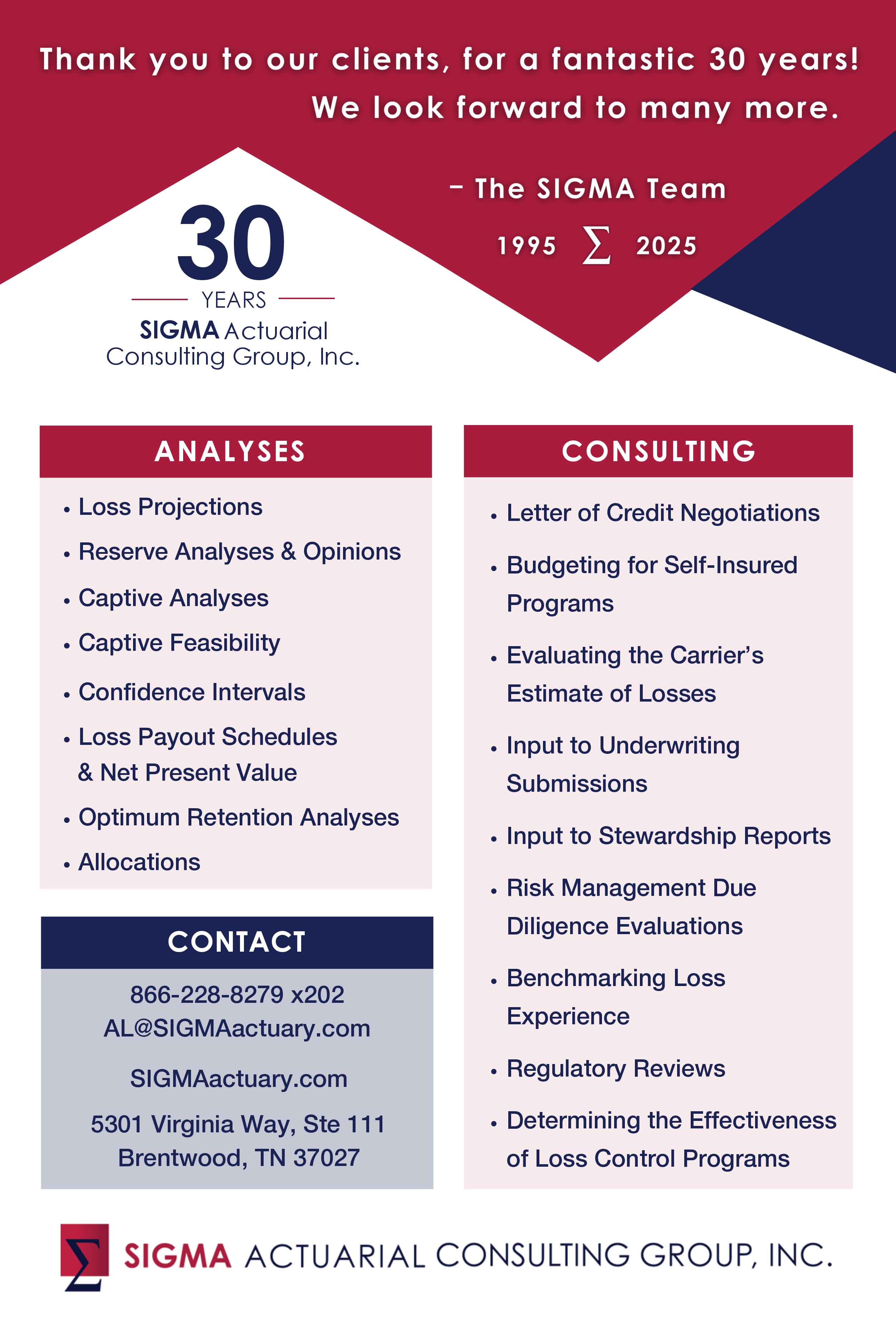Marsh Captive Solutions
With an uptick in PCC formations, Rob Geraghty of Marsh reveals that its Mangrove vehicles are set to have their strongest growth year ever
Who should consider using a Protected Cell Company (PCC)? And what do they offer?
Firms ranging from medium-sized companies upwards, that are potentially looking to retain risk, whether in a captive or any sort of risk retention vehicle, should consider using a PCC. It should also be considered as an option by those looking to segregate risk, assets, and liabilities—this can be done within the cell itself. We have also seen a number of firms utilising a cell to front risk on a non-admitted basis to access reinsurance markets.
There’s a great deal of interest in protected cells, with greater uptake than we have ever seen before across the European region. PCCs are suitable for any firm seeking to front their risks into Europe via a cell for European business; they have many of the same benefits as captive, solutions, but with different advantages such as potential time costs and capital savings.
The interest though is truly global, with many recent enquiries coming in for our vehicles in Washington DC, and the Isle of Man.
What current trends are you seeing around PCCs in Europe?
Marsh Captive Solutions has created a new cell feasibility study run by the advisory team in London, which complements our existing captives suite of products, to assess the potential advantages of new cell establishments.
Some organisations are looking to establish cells and start with the cell feasibility study, therefore, a lot of ongoing feasibility studies are currently underway, and there have been some new establishments across the region, in terms of the Mangrove PCCs in Malta, the Isle of Man, and Washington, DC, that we own, and some of the other third-party PCCs that we operate in Guernsey, for example.
Why do you think that there is such a keen interest in PCCs all of a sudden?
PCCs offer many of the advantages that a captive offers. However, clients are increasingly looking towards saving more on the timing, costs, and potential capital reduction as well. There is a growing emphasis on these elements; the client does not have to give up so much time, as the cell does not have its own board of directors. Furthermore, PCCs do not have that high-level cost element that is usually associated with captives and do not have to be capitalised to the level of a captive.
Do you see people moving from protected cells onto single-parent captives eventually or do a lot of people stay within PCCs?
Some firms use PCCs as a way to test the water when starting out, rather than diving in with a fully-fledged legal entity such as the captive vehicle. Increasingly, we are seeing more companies looking to do this.
At the moment, new companies will probably stay within a cell for a certain amount of time, and then as they develop and expand the cell operation, they may put many more lines of business in. As the cell becomes bigger, they may potentially head towards the captive route.
Are you seeing any particular domiciles stand out in terms of PCCs uptake?
We are seeing a lot of growth in the Isle of Man. Mangrove Insurance Solutions PCC was established in 2009. This year it is set to have its highest growth year ever and we anticipate strong growth, moving forward.
In February this year, we launched our new vehicle in Malta, Mangrove Insurance Europe PCC. More firms are seeking to write direct business in Europe, but don’t necessarily have the capital to run at Solvency II level. Our vehicle in Malta offers a cost-effective and capital-efficient way of writing European business. Consequently, we have had a lot of success in Malta this year.
In Washington, DC, Mangrove Insurance Solutions PCC has also had a very good year with numerous new cell formations. We believe that a significant portion of the growth in the US PCCs will come from mid-size firms as we tailor products to provide solutions in this client segment.
With the launch of Mangrove Insurance Europe in February this year, how have the first few months been? How much interest have you received?
We have had a great start to the year in Malta, with success there in terms of established cells and many Mangrove feasibility studies, which are ongoing at the moment.
The key in Malta is the potential for direct writing across the EU from that multi-vehicle and the potential for having lower capital requirement because the minimum guarantee funds under the Solvency II regulation has been provided by Marsh in setting this up. Therefore, companies that potentially couldn’t get to direct write into Europe and satisfy at Solvency II levels potentially can use Mangrove in Malta instead.
Over the group, it is about time and cost saving, which companies seem to be putting a lot more emphasis on. They are looking to implement a captive but potentially can get all they want from a cell and get more benefit from it.
Why was Malta the domicile for the Mangrove PCC?
We invested a lot of time and capital in Mangrove PCC as we started out, so we gave careful consideration as to where we would locate it. We wanted to put it somewhere where it could direct write in Europe, to satisfy the market demand.
We already had our Mangrove operation in the Isle of Man and additionally, we manage a third-party in Guernsey but we couldn’t write direct European business from either of those domiciles so then we looked towards the established domiciles in Europe.
As an established domicile where Marsh already has the largest market share and a very experienced team, coupled with a proactive regulator and both strong and appropriate captive legislation, Malta offered us and our clients what we wanted. From a Marsh point of view, it has been one of our highest growing onshore domiciles for captives. For all of these reasons, we saw that as a perfect fit for Mangrove.
How do you see interest in PCCs developing over the next five years?
I have never had so many enquiries about PCCs than I have had this year and it’s not just enquiries, many companies are following through with formations. Our Mangrove vehicles are set to have their strongest growth year ever. It is definitely a prime time for companies to look towards these solutions and the overall market of PCCs to grow.





